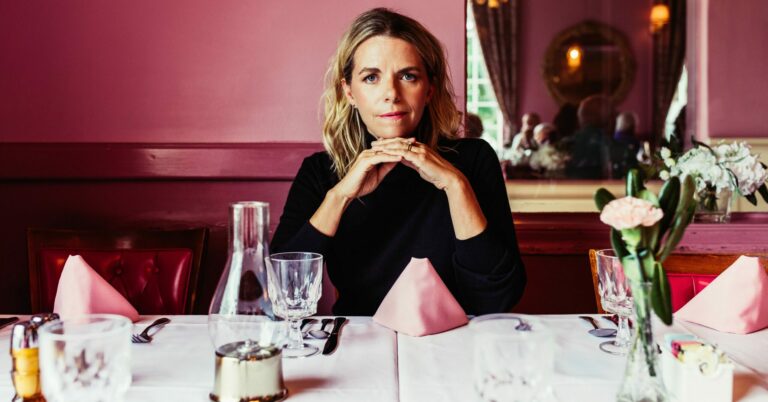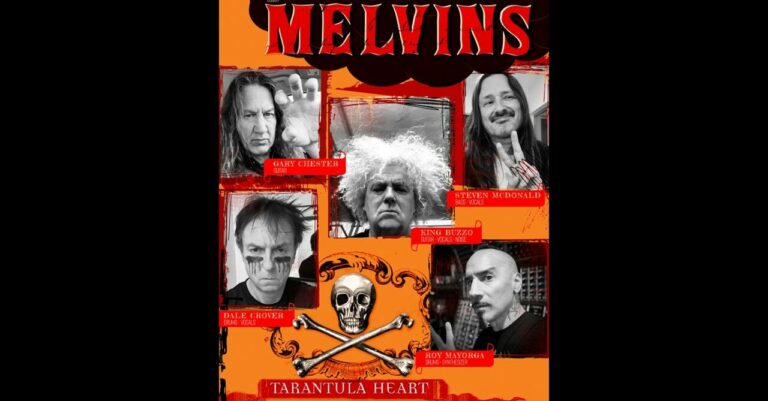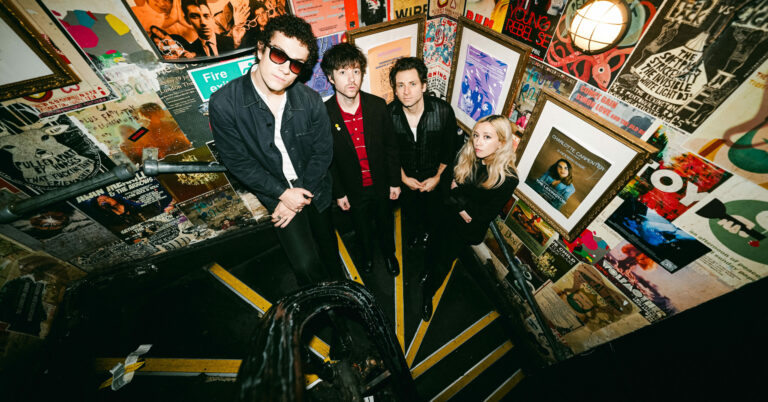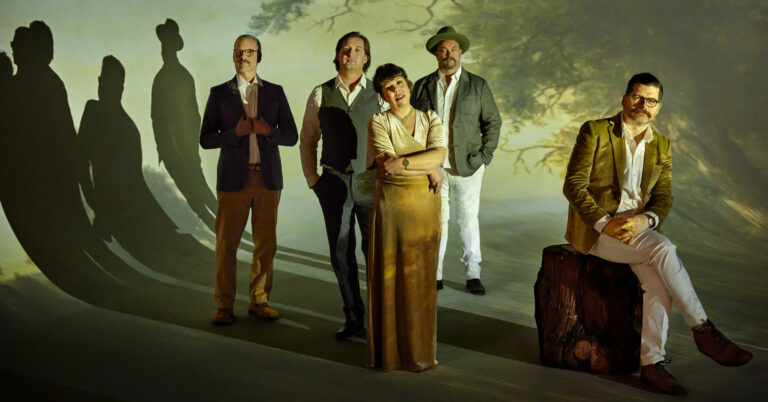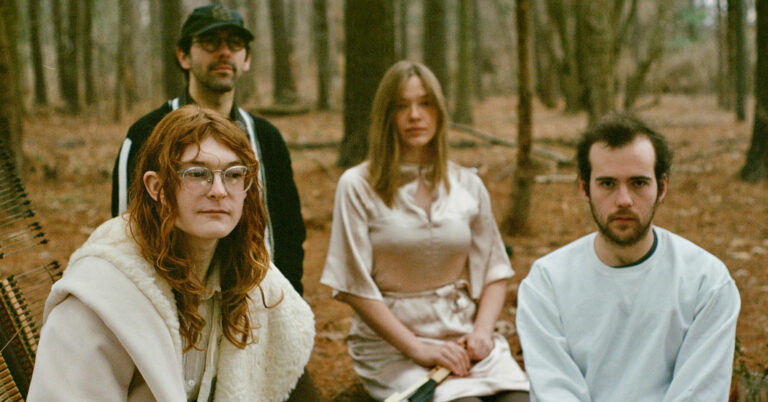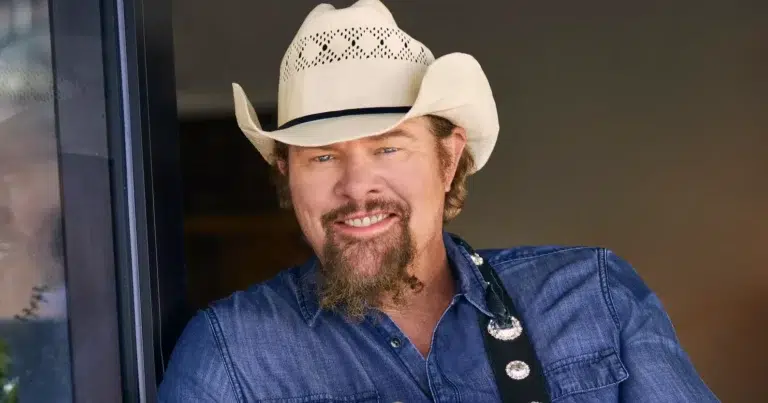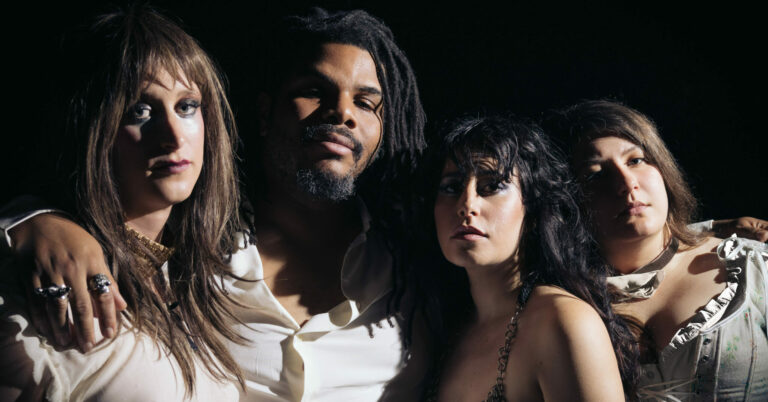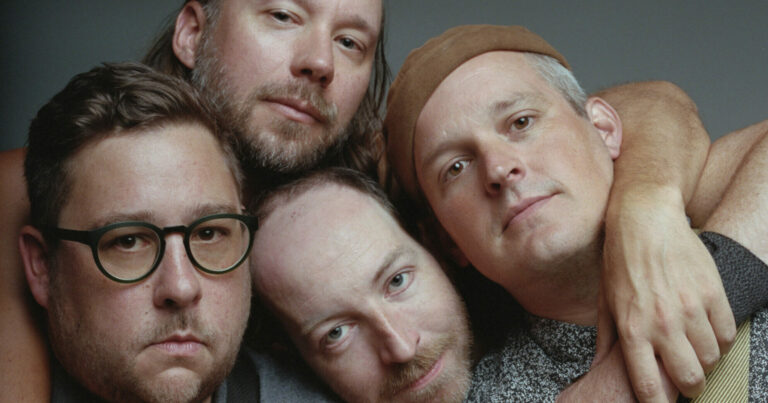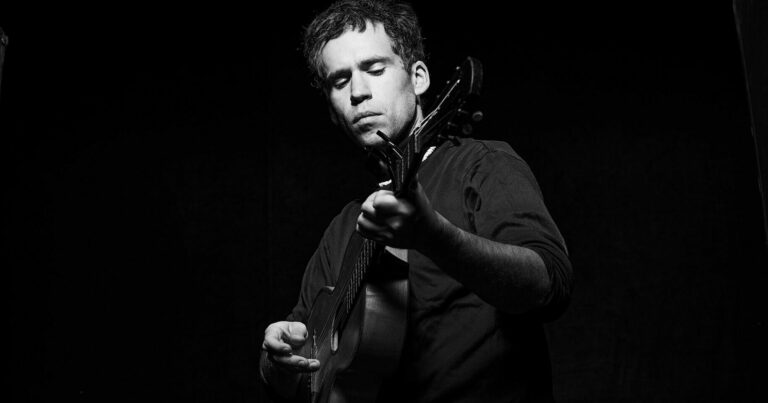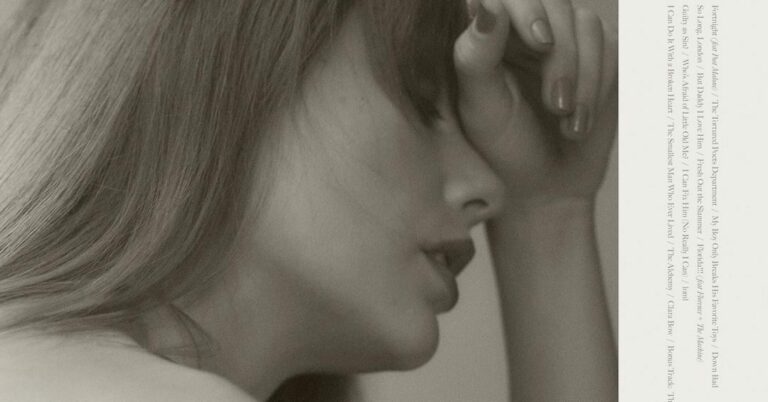Aoife O’Donovan has released a new song, ‘Daughters’, which is taken from her upcoming album All My Friends – out March 22 via Yep Roc. Following the previously unveiled title track, ‘Daughters’ features brass quartet the Westerlies, orchestral collective the Knights (conducted by O’Donovan’s husband, Eric Jacobsen), and the San Francisco Girls’ Chorus. Check out a lyric video for it below.
Melvins Announce New Album ‘Tarantula Heart’, Share Video for New Single
Melvins have announced their latest album, Tarantula, to be released on April 19 via Ipecac. Lead single ‘Working the Ditch’ arrives today alongside a music video by Jesse Nieminen. Check it out below.
“The way we approached Tarantula Heart was different than any other Melvins’ album,” Buzz Osborne explained in a statement. “I had Dale and Roy Mayorga come in and play along with Steven and I to some riffs, then I took those sessions and figured out what parts would work and wrote new music to fit. This isn’t a studio approach we’ve ever taken. Usually we have the songs written BEFORE we start recording!”
“The majority of Tarantula Heart has dual drum parts,” drummer Dale Crover added. “Roy is an amazing drummer. We would discuss what we would do pattern wise, then we’d just go for it. Improvising riffs and trading off on drum fills.”
Tarantula Heart Cover Artwork:
Tarantula Heart Tracklist:
1. Pain Equals Funny
2. Working the Ditch
3. She’s Got Weird Arms
4. Allergic To Food
5. Smilier
Lo Moon Announce New Album, Release New Songs ‘Water’ and ‘Connecticut’
Lo Moon has announced their third LP, I Wish You Way More Than Luck. It’s set to arrive on April 5 via Thirty Tigers/The Orchard. The follow-up to 2022’s A Modern Life Both was produced by Mike Davis, with Alan Moulder on mixing duties. Today, the psych-pop quartet has shared two tracks from it, ‘Water’ and ‘Connecticut’. Check out the Saoli Nash and Warren Fu-directed video for ‘Water’ and listen to ‘Connecticut’ below.
“Since all the songs on our new album were inspired by the moment I found my artistic voice as a teenager, I started Water with the riff on an acoustic guitar,” the band’s Matt Lowell explained in a statement. “It really reminded me of something I might play when I was sixteen. It felt whimsical and nostalgic and when the band jumped in it felt like refreshing new ground for us. A couple days before the song appeared I had re-read David Foster Wallace’s transcript of a commencement speech he gave at Kenyon College in 2005. It had a much more profound effect on me from the first time I read it, and I thought the last line of the speech I Wish You Way More Than Luck could work perfectly within the musical framework. In some ways the song felt like it came to us, it’s hard to explain when those things happen, but we’re happy it did.”
I Wish You Way More Than Luck Cover Artwork:
I Wish You Way More Than Luck Tracklist:
1. Borrowed Hills
2. Waiting A Lifetime
3. Connecticut
4. When The Kids Are Gone
5. Water
6. Day Old News
7. Mary In The Woods
8. Evidence
9. The Chapel
10. Honest
The Decemberists Release First New Song in Six Years
The Decemberists have returned with their first new song in six years. ‘Burial Ground’ features the Shins’ James Mercer on backup vocals, and it accompanies the announcement of a lengthy North American tour. Take a listen and find the list of tour dates below.
“‘Burial Ground’ is in that time-honored pop song tradition, a paean to hanging out in graveyard,” vocalist Colin Meloy shared in a statement. “The melody hook came to me in a dream and I hummed it into my phone on waking. Most dream-songs are bad; this was the exception.”
Since the Decemberists’s last album, 2018’s I’ll Be Your Girl, Meloy has written several children’s and YA novels. His Wildwood series is currently being adapted into an animated film starring Carey Mulligan, Mahershela Ali, Angela Bassett, Jermaine Clement, Tom Waits, and more.
The Decemberists 2024 Tour Dates:
Apr 30 – Kingston, NY – Ulster Performing Arts Center*
May 2 – Boston, MA – Roadrunner*
May 3 – Brooklyn, NY – Brooklyn Paramount Theatre*
May 6 – Toronto, ON – Exhibition Place – Queen Elizabeth Theatre*
May 7 – Pittsburgh, PA – Stage AE*
May 8 – Philadelphia, PA – The Fillmore Philadelphia*
May 10 – Washington DC – The Anthem*
May 11 – Durham, NC – Durham Performing Arts Center*
May 12 – Atlanta, GA – The Eastern*
May 14 – Dallas, TX – Majestic Theater*
May 15 – Austin, TX – Bass Concert Hall*
May 17 – St Louis, MO – The Pageant*
May 18 – Milwaukee, WI – Riverside Theater*
May 19 – St Paul, MN – Palace Theatre*
May 21 – Chicago, IL – Salt Shed*
May 22 – Detroit, MI – Royal Oak Music Theater*
May 24 – Nashville, TN – Ryman Auditorium*
Jul 12 – Bend, OR – Hayden Homes Amphitheater^*
Jul 13 – Oakland, CA – Fox Theater*
Jul 15 – Los Angeles, CA – The Bellwether*
Jul 18 – San Diego, CA – Humphreys*
Jul 19 – Tucson, AZ – Rialto Theater*
Jul 20 – Phoenix, AZ – The Van Buren*
Jul 22 – Santa Fe, NM – The Bridge at Santa Fe Brewing*
Jul 23 – Denver, CO – The Mission Ballroom*
Jul 24 – Sandy, UT – Sandy Amphitheater*
Jul 26 – Missoula, MT – Kettlehouse Amphitheater*
Jul 27 – Spokane, WA – Spokane Pavilion*
Jul 29 – Vancouver, BC – Queen Elizabeth Theatre*
Aug 3 – Troutdale, OR – McMenamins Edgefield
* with Ratboys
^ with The Head and the Heart
Tomato Flower Unveil New Single ‘Temple of the Mind’
Tomato Flower have previewed their upcoming debut album No with a new single, ‘Temple of the Mind’, which follows last month’s ‘Saint’. Check it out below.
No, the follow-up to the Baltimore band’s 2022 EPs Gold Arc and Construction, arrives March 8 via Ramp Local. Read our Artist Spotlight interview with Tomato Flower.
Toby Keith Dead at 62
Toby Keith, the country superstar who became a symbol of American patriotism and masculinity in the mid-2000s, died yesterday (February 5). According to his website, Keith passed away peacefully in the night, surrounded by family. Though no cause of death was disclosed, he had been diagnosed with stomach cancer in 2021. Keith was 62.
Born on July 8, 1961 in Clinton, Oklahoma, Keith formed the Easy Money Band in the early 1980s while he was playing on a semi-pro football team, the Oklahoma City Drillers. The group began playing at honky-tonks in Oklahoma and Texas before Keith moved to Nashville in the early 1990s in hopes of getting a record deal. He eventually signed to Mercury Records, where he released his self-titled debut album in 1993. It was led by the single ‘Should’ve Been a Cowboy’, which went on to become the most-played country song of the 1990s.
After his tenure at Mercury, Keith signed to DreamWorks Records, achieving a commercial breakthrough with the title track from 1999’s How Do You Like Me Now?! Its follow-up, 2001’s Pull My Chain, went double platinum and spawned three No. 1 singles. In 2002, Keith released ‘Courtesy of the Red, White and Blue (The Angry American)’, a divisive song written in response to the terrorist attacks on September 11, as the lead single from his album Unleashed. Though he described himself as “a conservative Democrat who is sometimes embarrassed for his party,” he later re-registered as an independent and performed at events for Presidents George W. Bush, Barack Obama, and Donald Trump.
Keith’s highest-charting Hot 100 single came in 2012 with ‘Red Solo Cup’, and he continued dominating the country album charts with records like 2013’s Drinks After Work and 2015’s Hope on the Rocks. He put out a total of nineteen albums, most recently Peso in My Pocket in 2021. That same year, Trump awarded Keith the National Medal of the Arts.
Mannequin Pussy Drop New Single ‘Nothing Like’
Mannequin Pussy have shared a new single, ‘Nothing Like’, lifted from their forthcoming LP I Got Heaven. It follows previous entries ‘I Don’t Know You’, ‘Sometimes’, and the title track. Check out its accompanying video, which was generated using AI by director Connor Clarke, below.
“‘Nothing Like’ is pure fantasy,” Marisa Dabice explained in a press release. “Originally inspired by a stoned out night 6 years ago spent watching an episode of Buffy the Vampire Slayer in which Buffy is forced to kill her lover, Angel, before he destroys the world. The song existed in fragments until it finally met its final form last year. Young love is so often all consuming, dangerous, and heightened to mythological proportions – ‘Nothing Like’ sought to mix the balance of both the light feelings of new love and the absolute depths that obsession can bring you to.”
I Got Heaven comes out March 1 on Epitaph.
Pissed Jeans Share New Single ‘Sixty-Two Thousand Dollars in Debt’
Pissed Jeans have dropped ‘Sixty-Two Thousand Dollars in Debt’, the latest preview of their upcoming album Half Divorced. The band announced the record, which arrives on March 1 via Sub Pop, last month with a video for the lead single ‘Moving On’. Listen to the new track below.
A. Savage Unveils New Single ‘Black Holes, the Stars and You’
Parquet Courts’ A. Savage has released a new standalone single, ‘Black Holes, the Stars and You’, which was recorded in the same session as his recent solo LP Several Songs About Fire. Listen to it below.
“’Black Holes, the Stars and You’ was recorded in the same session as Several Songs about Fire, but didn’t make the record because albums can only be so long,” Savage explained in a statement. “It was a tough decision to make, but ultimately I felt it was good enough to get its own release. I love the groove that John Parish and Dylan Hadley lay down here, using various latin percussion instruments. It’s a song that I’d been working on for a few years, that had way too many parts and lyrics, which John really helped me sculpt down into what it is now, bless him. The song is about the different ways people see each other, and how the smaller we feel the bigger others seem. Sometimes you find yourself orbiting someone who has no idea of their own magnitude. Sometimes you feel like they are examining you in a Petri dish, their gaze a magnified eye in the sky.”
Taylor Swift Shares Tracklist for ‘The Tortured Poets Department’
Taylor Swift has revealed the tracklist for her upcoming album The Tortured Poets Department. It spans 16 tracks, plus a bonus track called ‘The Manuscript’ on physical editions. Post Malone guests on the opening track ‘Fortnight’ and Florence + the Machine appears on ‘Florida!!!’. Other track titles include ‘But Daddy I Love Him’, ‘Loml’, and ‘I Can Fix Him (No Really I Can)’. Find the tracklist below.
While receiving her 13th Grammy on Sunday, Taylor Swift broke the news that she will release a new album on April 19 called The Tortured Poets Department. He record Midnights picked up the win for Best Pop Vocal Album before going on to win Album of the Year at the 2024 Grammys.
The Tortured Poets Department Tracklist:
1. Fortnight [feat. Post Malone]
2 The Tortured Poets Department
3. My Boy Only Breaks His Favorite Toys
4. Down Bad
5. So Long, London
6. But Daddy I Love Him
7. Fresh Out the Slammer
8. Florida!!! [feat. Florence and the Machine]
9. Guilty as Sin?
10. Who’s Afraid of Little Old Me?
11. I Can Fix Him (No Really I Can)
12. Loml
13. I Can Do It With a Broken Heart
14. The Smallest Man Who Ever Lived
15. The Alchemy
16. Clara Bow
17. The Manuscript (Bonus Track)
